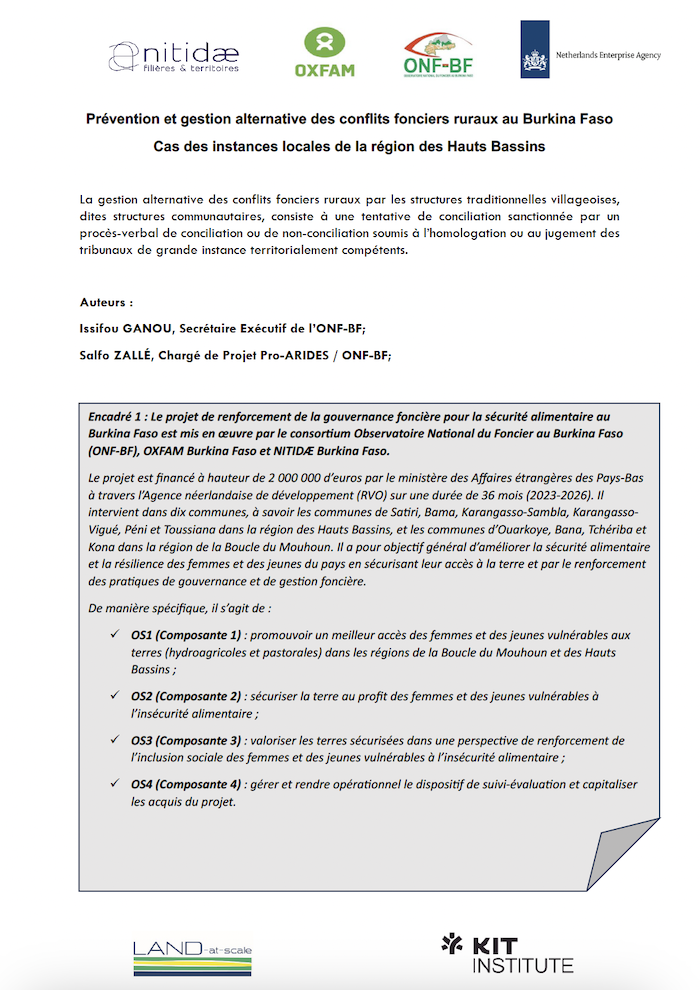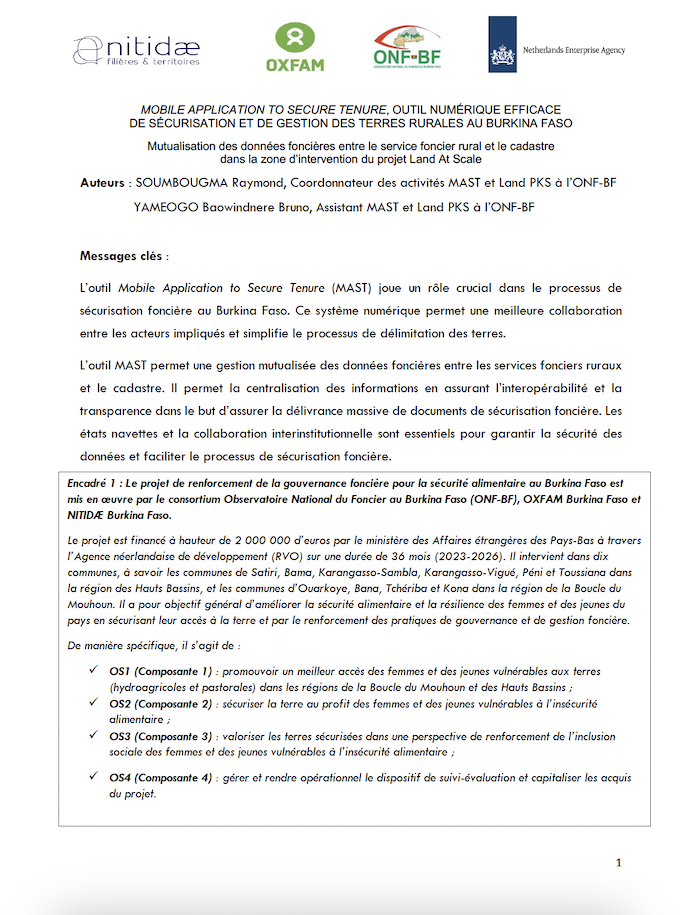Prévention et gestion alternative des conflits fonciers ruraux au Burkina Faso
Au Burkina Faso, on constate que la gestion des ressources foncières n’a jamais été sans poser de problèmes depuis les années 1960. La plupart de ces difficultés sont dues au fait que les populations rurales vivent sur des acquis traditionnels où la terre est une propriété lignagère ou familiale reconnue par toutes les autorités coutumières. La faible sécurisation des terres rurales par des actes administratifs ou juridiques s’explique par le dysfonctionnement des structures et instances de sécurisation foncière et de gestion des conflits instituées par la loi.


